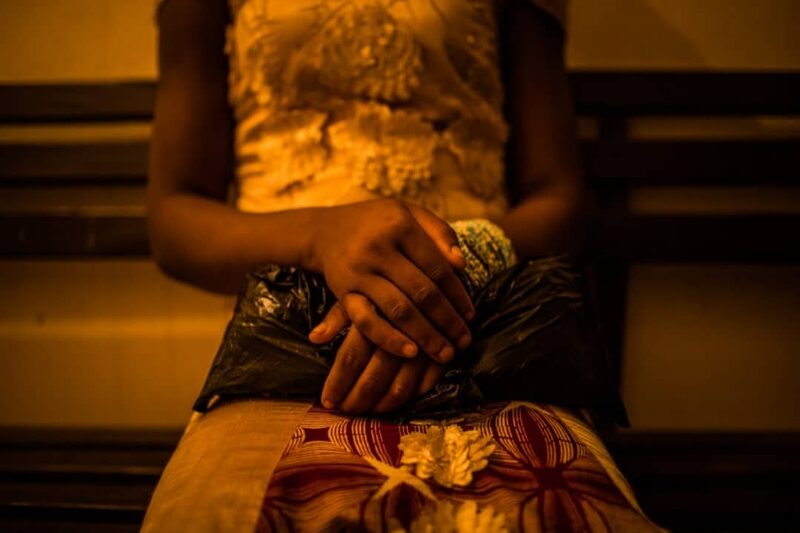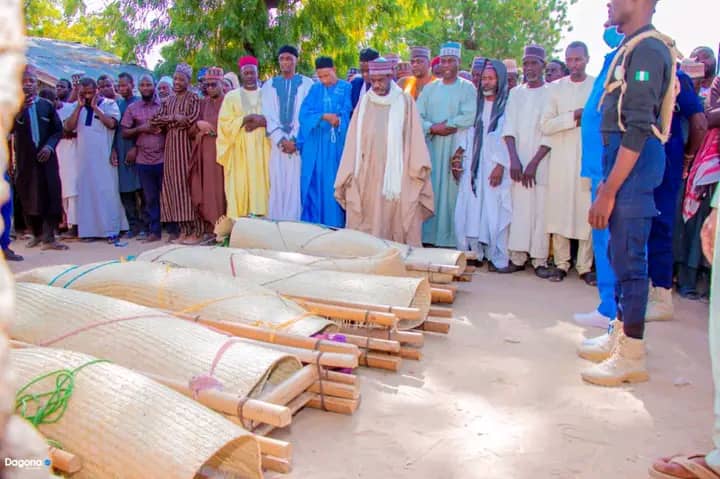Girl Child Concerns (GCC), in collaboration with the Adolescent Girls Initiative for Learning and Empowerment (AGILE), has been training facilitators to encourage girls to get an education and establish safe spaces to avoid becoming victims of gender-based violence (GBV).
The five-day training workshop – for facilitators at 100 secondary schools in Borno State – started on Monday, January 30, and ended on Friday, February 3. It was held at the Borno State ministry of reconstruction, rehabilitation and resettlement.
Hauwa Musa Goma, an education specialist from AGILE, told RNI reporter Zainab Alhaji Ali that the aim of the training was to encourage girls to get an education and to make them aware of the dangers that existed, especially on the streets. The facilitators learnt that they should urge girls to become self-reliant, which they would only be able to do if they had a good education.
“During secondary school, girls face many challenges, particularly those who live in internally displaced persons’ camps. All adolescent girls are at risk of GBV, but IDP girls are more likely to be victims because of the conditions at the places where they live. IDP camps are congested and often girls are sent on to the streets to beg instead of going to school, which many parents cannot afford. These girls are our main focus. It is important to keep the girls off the streets and in school.
Goma, said: “Years ago if you studied hard you got a job. But nowadays, even if you study you sometimes can’t get a job. However, education is very important because there are more jobs for girls, especially those who attend and graduate from tertiary education institutions. The world opens up for them and they can do just as well as men. But girls should be encouraged to at least complete secondary school, which gives them a good grounding and will help them in their lives going forward.
“Some men regard women as worthless. They see women as being around only to satisfy their sexual needs and that puts girls at high risk. They need to know why they are at risk of GBV and encouraged to conduct themselves morally.
“That is why we are training the trainers on how to support girls. Sometimes, for example, if girls need food and/or money, they are persuaded – or in some cases forced – to provide sexual favours to boys and men. Oral sex can lead to them being further abused and can result in rape. This means that these girls lose their dignity and they might be forced to drop out of school because they fall pregnant. Girls need guidance on how to keep themselves safe.”
Goma said facilitators are trained to help girls to protect their dignity.
“The facilitators are trained to go to schools and to mentor the girls. They are referred to as guidance and consulting mistresses.
“They are close to the girls and the girls know that they can trust them and be open with them about whatever it is that is troubling them. The girls feel more comfortable with them and tell them things that they might not share with anyone else. They tell the facilitators what’s going on in their lives and share bad experiences with them. That is why it is imperative for facilitators to be trained well so that they are sympathetic and empathic; so that they fully understand the position the girls might find themselves in and can give good guidance.”
Goma said that after the training AGILE would monitor the facilitators from time to time to see that they were doing the work expected of them.
“For now we are targeting 100 secondary schools in the north, central and south of Borno State,” she said.
Hajja Ma’am Kyari, one of the facilitators, said: “I have learnt a lot during this training workshop, such as the importance of girl-child education. The girls will be mothers later and will know the importance of education. If mothers have been educated, they will want their daughters to get an education as well. They will encourage their daughters to go to school and tell them that they should stay in school at least until they complete secondary school. Of course, it would be even better if they continued their education in tertiary institutions.”
Kyari said parents and guardians should observe their children at home, ensuring they know at all times who their girls are friendly with and where they are going.
“Sometimes girls get into a bad crowd and do things they should not do. Some end up falling pregnant and have to leave school and get an abortion, which could result in their own death. Some girls and their friends might drink alcohol or take drugs and become addicts.
“That’s why we are now trained on how to deal with these issues. We go to schools to guide and counsel pupils. We hope that, by doing so, the girls will share their knowledge with friends. This will benefit and improve the community as a whole,” she said.
Hauwa Jauro, a participant from the Bayo Local Government Area, said: “I have learnt many things from this training. One of the things was that parents – and especially mothers – should do more to help their daughters keep safe. They must be taught moral behaviour and need a good upbringing.
“Mothers should be more open with their daughters to help them to avoid getting hurt by others. They should tell their girls the facts of life and warn them so they do not get into situations where they might be harmed. As they reach puberty, mothers need to teach their daughters about sex so they know that if they get involved with boys and men they could fall pregnant. Mothers should always be truthful and not hide the facts so that their daughters’ dignity stays intact.
“Unfortunately, many mothers do not tell them these things and that is when we, as mentors, need to step in. We are open and honest with the girls at school. We tell them the facts of life and prepare them so that they can protect themselves. We tell them to stay in places that are safe; not to make friends with those who might tempt them to take drugs or alcohol; always to take care when they are walking in the streets, especially if they are alone; avoid boys and men who might abuse them; and not to be tempted by people who might offer them food, gifts or money for sexual favours.
“We mentor them on GBV, which is prevalent in patriarchal societies, such as ours. Boys are treated like heroes and get most of the privileges, while girls are often taught to obey and serve men. Girls need a safe place where they will be protected and taught that their lives are just as important as the lives of boys. Our girls need to feel safe in society and be encouraged to speak out if they are threatened or coerced by boys and men,” Jauro said.
ZAINAB ALHAJI ALI







